What Is Lead Generation?
First of all, let’s take a look at what lead generation is? Lead generation is a type of business where you attract, identify, and qualify potential customers for other businesses. These people, who are interested in someone else’s products or services, are called leads.
To put it another way, a lead generation entrepreneur is someone who creates systems, such as websites or online advertising campaigns, to capture the attention of people who are interested in a specific product or service. Then, they sell those leads to clients like local businesses or companies that need new customers. The information collected from leads can include a phone number, email address, or even a contact form filled out by someone seeking a particular service.
There are different methods for generating leads:
- One common method is to create a simple website targeted at a local area, designed to rank on Google for specific keywords related to professional services. When someone searches for that service and either fills out a form or calls the number on the site, their information is collected and forwarded to a business that provides the service.
- Another approach involves using advertising campaigns, content marketing or social media to attract people interested in a certain product or service. In this model, you act as the middleman, connecting potential customers to businesses and getting paid either per lead or through a flat monthly fee for your lead generation services.
What You Need to Get Succeed in Lead Generation?
To succeed in lead generation, you need a mix of skills and strategy more than a large amount of money. Here, we’ll look at the key skills and strategies that a lead generation entrepreneur should have in order to succeed.
- Digital Marketing and SEO Skills
One of the most important abilities is knowing how to drive traffic to your website. Most lead generation businesses depend on ranking well on Google, so you should learn how to build a user-friendly website and optimize it for search engines. To improve this skill, you need to know how to create high-quality content, optimize for SEO and Run effective online advertising campaigns.
- Patience and Persistence
Unlike other online models like selling products, lead generation takes time. You won’t see success overnight. For example, it can take weeks or even months to rank your lead gen site on Google, but once it ranks well, it can bring in consistent income for years, even with minimal updates.
- Market Research Skills
You should know how to research local markets or different niches to find where leads are in high demand and where businesses are willing to pay for them.
According to the website Socialcrawlytics, you should “check Google Trends for a site’s key terms and products to see search trends over time.”
- Communication and Sales Skills
A big part of lead generation is being able to communicate with businesses to sell your leads. You can do this by calling or emailing local companies. In this process, building trust with your client is very important; businesses need to know they can rely on the quality of your leads.
- Stay Updated and Flexible
The online world changes fast; search engine algorithms or ad platforms might update suddenly. You need to be ready to adjust your strategies when these changes happen.
The best lead generation entrepreneurs are those who keep learning and stay flexible as the digital landscape evolves.
Amazon FBA: How It Works for Sellers?
Now it’s time to talk about Amazon FBA. Do you know What is Amazon FBA Business? In brief, Amazon FBA is a type of seller service where Amazon handles the packing, shipping, storage, and even customer service for your products.
To explain in more detail, you, as a seller, create product listings to sell on the Amazon platform and send your items to an Amazon Fulfillment Center. From that point, every time someone orders your product, Amazon will pick, pack, and ship it to the buyer.
In this method, you only focus on finding products and listing them for sale, while Amazon’s logistics system takes care of the rest. This service is very easy and useful for individuals or small businesses who want to work in online selling. You can do this alone or in small teams, even if you’re a beginner. Another benefit of this service is access to Prime shipping, saving time, and allowing you to focus on marketing or product research.
What You Need to Get Succeed in Amazon FBA?
If you’re a beginner and don’t have any knowledge about how to succeed in Amazon FBA, this guide will help you understand what it takes to succeed in this business model.
- Primary Investment
Unlike lead generation, Amazon FBA requires an initial investment. It’s not a low-cost business model to start and as a sellers, you must purchase inventory before you can sell. Besides this, you also have to spend on Amazon seller fees, packaging, shipping, and sending your goods to Amazon.
So, first of all, you should estimate your budget and initial investment to cover all the necessary costs.
- Product Research Is Key
The most important stage in Amazon FBA is finding and researching products. There are many tools to help you choose and sell on Amazon, but you need to know which ones are the best or which products can bring profit in the short term.
If you want to know more about Common Challenges for New Amazon Sellers, it’s a good idea to read the related article on our website.
- Learn the Amazon Platform
It is necessary to understand how Amazon’s system works, what gated products are, how to calculate fees, what return policies are and much more. By having this essential information, you can plan better for your business and logistics. Additionally, you must keep an eye on inventory levels, product sourcing, freight shipping, preparing and labeling products for FBA.
- Marketing and Optimization Skills
The necessary skills to succeed in Amazon FBA are not just about selling products, they are also involve digital marketing and optimization skills.
For instance, you should write product listings with strong titles, descriptions, relevant keywords and high-quality images. In addition, running advertising to make your products visible in search results and managing an advertising budget are important if you want to reach more customers.Another key to success is getting reviews, especially positive ones. Products with better ratings and more reviews tend to rank higher and generate more sales.
- Use Helpful Tools and Services
To boost your chances of success, you can use various tools and services that help improve your Amazon FBA performance. For example, use product research tools to find profitable items, repricing tools to help manage your prices automatically, and more importantly, use an Online arbitrage leads service to save time on product research.
Our team at OABeans offers a curated list of profitable arbitrage leads updated daily, which can be very helpful for Amazon sellers who are looking for inventory ideas.
Key Differences of Amazon FBA & Lead Generation
Both of these online business models can indeed generate a good income, but you need to be familiar with the differences between them so that you can make a better choice. That is why in this section, we have prepared a comparison table for you in various fields.
| Feature | Amazon FBA | Lead Generation |
| Business Model & Assets | Product-based. assets include inventory and Amazon listings. | Service/digital-based; assets include websites, landing pages and funnels. |
| Upfront Effort vs. Ongoing Work | Requires continuous work—managing inventory, launching new products and marketing. | once ranked, requires minimal maintenance. |
| Required Skills vs. Barrier to Entry | Lower skill barrier but requires capital.
high competition due to easy entry. |
Higher skill requirement (SEO, marketing), less direct competition. |
| Competition Dynamics | Global competition includes big brands, other sellers, and even Amazon itself. | Local/niche-specific competition; easier to dominate small markets. |
| Control & Platform Dependency | Business depends on Amazon’s platform, limited control and customer access. | Full ownership of assets; more independence and control. |
| Fulfillment vs. Service Delivery | Amazon handles fulfillment, shipping, and customer service. | You deliver leads. the client handles converting leads into customers. |
Startup Costs of Lead Generation & Amazon FBA
One of the significant differences between Amazon FBA and lead generation is related to how much money a person needs to start each model.
Lead generation usually requires a low financial barrier to get started. In general, you only need to spend money on a domain, website hosting, and maybe some marketing tools or content creation. Most lead generation entrepreneurs start their business with just a few hundred dollars. But you should know that to succeed in this field, you must invest a lot of time instead of money.
On the other hand, Amazon FBA requires a much higher investment, because you need to purchase inventory before you can sell anything on the platform.
In addition, if you’re a private label seller, you’ll also need to spend money on shipping, product design, and branding, and if you want to continue working as a professional seller, you’ll need to pay a monthly subscription fee.
Profit Margins and ROI: Which Model Offers Better Returns?
An important question about these two types of online businesses is: Which model offers better returns? To answer this, we need to analyze two aspects: profit margin and ROI (Return on Investment).
Lead generation businesses typically enjoy very high profit margins because you only need to pay low costs for running a website or tracking services. If done well, you can achieve profit margins of around 80% after covering the initial setup costs. In Amazon FBA, the money you spend across different areas is higher. You have to pay Amazon fees, shipping, advertising, packaging, and more, so all of these expenses reduce your overall profit margin.
Another important aspect is ROI and the speed of return on your investment. With lead generation, you can reach a high level of ROI, but it depends on several factors and might take a few months to build and rank your site. But once your site ranks, it can generate steady income every month. On the other hand, Amazon FBA requires a higher investment, but if you’re successful, you can also earn a high monthly profit.
It’s important to note that both of these online businesses can scale to high-income levels. For example, with Amazon FBA, you can add more products or even hire a team to expand your business and with lead generation, you can launch different websites in various niches and earn money from each one. So, profit margin and ROI depend on how you work, your level of experience and professionalism, and the strategy or guidance you follow along the way in your journey.
Risks & Challenges of Amazon FBA & Lead Generation
You know that there’s no business without challenges, but it’s important to understand the risks and difficulties of each model and choose one that fits your abilities. So here, we’ve listed some of the most important challenges for Amazon FBA and Lead Generation.
1- Amazon FBA
- Inventory Risk: You should know that you have to buy products before starting to sell. If they don’t sell, there’s a risk of losing money or being forced to sell them at a lower price.
- High Fees: Amazon charges several fees, including FBA, referral and storage. These costs can significantly reduce your profit margin.
- Competition: Competition with other sellers can be a big challenge, requiring time and effort to stand out and grow your rank on Amazon.
2- Lead Generation
Now let’s quickly go over the risks and challenges of lead generation:
- SEO Dependence: To succeed in lead generation, you need to understand SEO and how search algorithms work in order to rank your website on Google. Without this, it’s hard to get traffic.
- Lead Qualification: The leads you generate must be relevant and high-quality. Clients only pay for leads that can truly turn into customers, not just general contacts.
- Client Dependence: One challenge is relying heavily on clients. If you only have one main client, your is at risk and losing them could stop your revenue entirely.
- Website Maintenance: To stay competitive and keep your rankings, it’s important to regularly update your website and strategies.
- Changing Trends: Shifts in search behavior or industry trends can affect your lead flow. If you’re not prepared, these changes can impact your rankings and income very quickly.
- Trust Building: In the early stages, businesses or clients might not trust you right away. You need to build strong relationships and show results to earn their trust over time.
Final Thoughts: Which Model is Better For You?
After reading this article, you may ask yourself about lead generation or Amazon FBA, which one should I choose? The quick answer is that it depends, because each has its own unique advantages and challenges
To make the best choice, you should analyze your individual goals, resources, and skills. Both models can be profitable. If you enjoy marketing and ranking websites, lead generation will feel rewarding. However, if you’re more excited about products and perhaps creating your own brand, Amazon FBA could be a better fit. At OABeans, we offer services to help new Amazon sellers find profitable products easily and save time on product research.


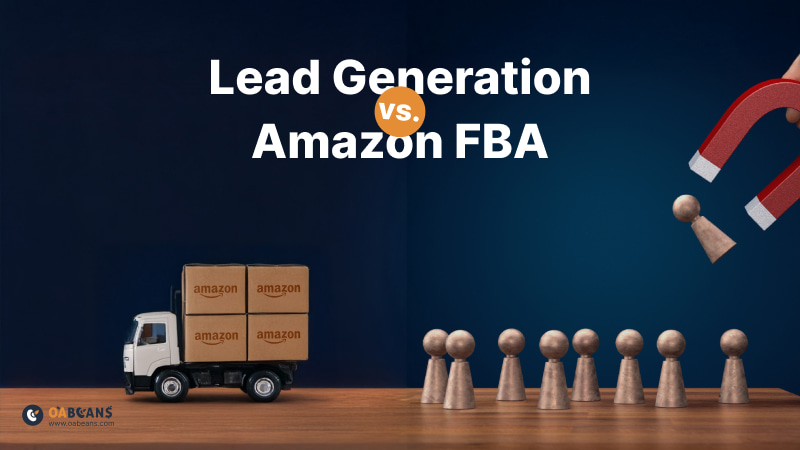

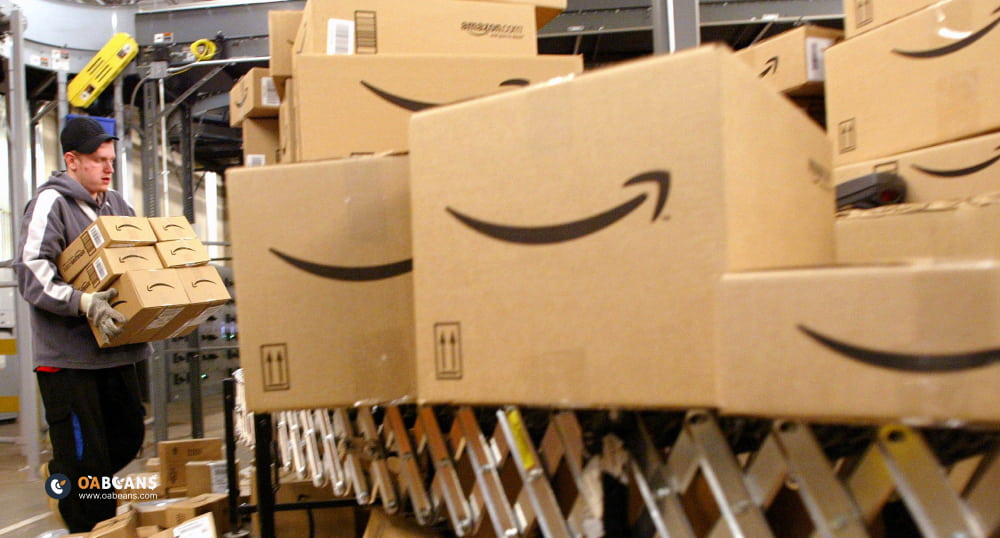
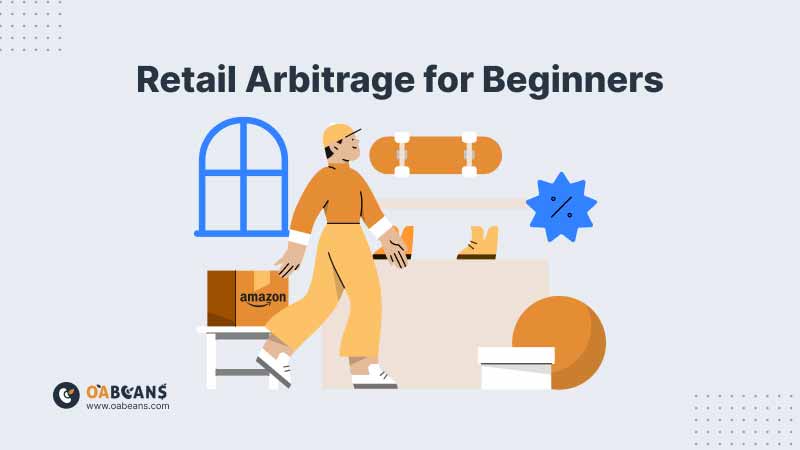
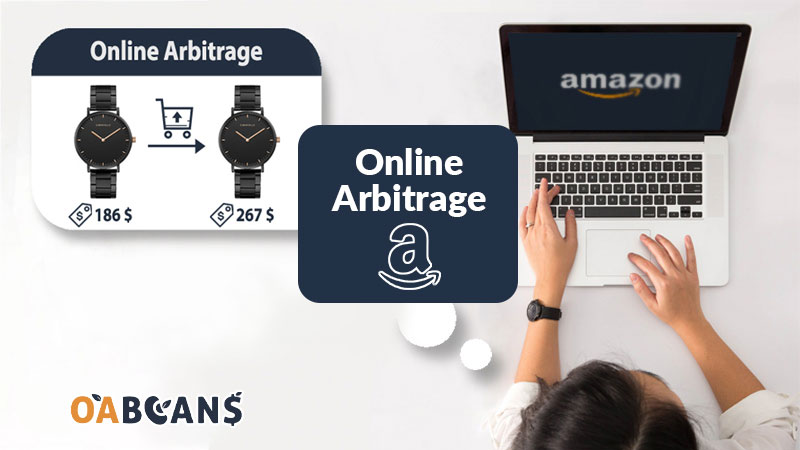
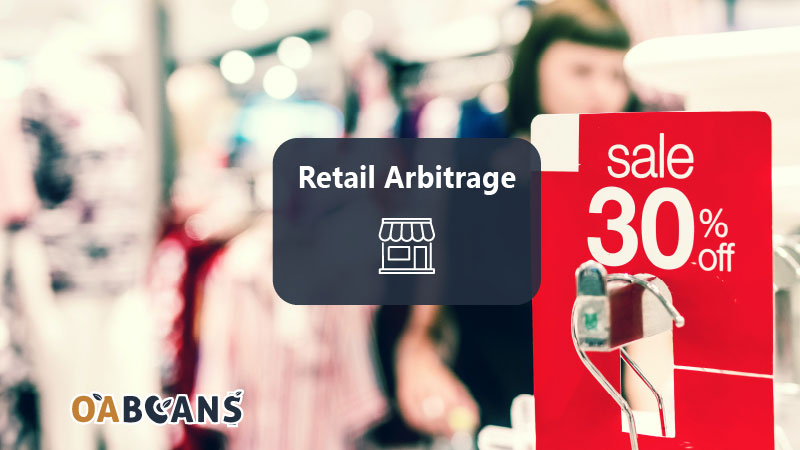
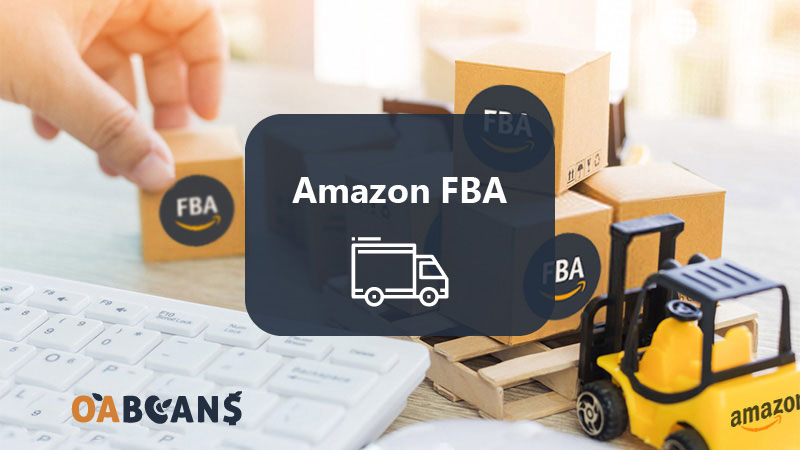

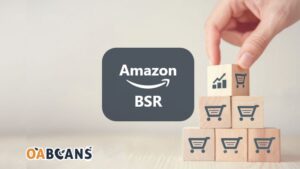

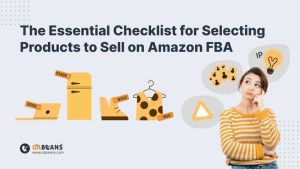

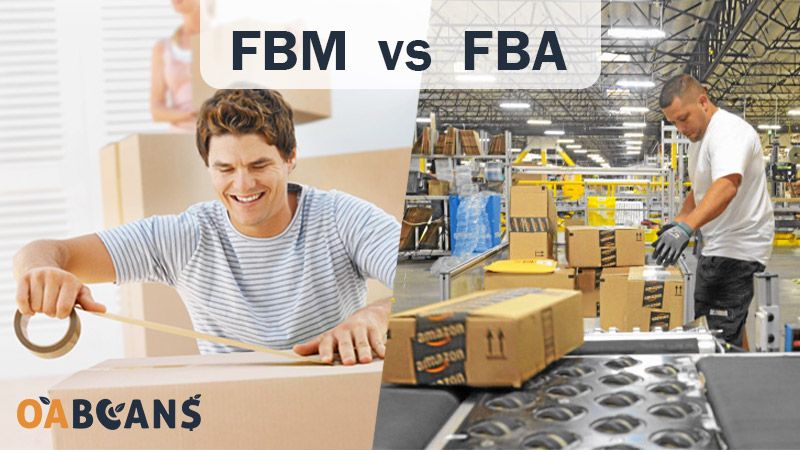

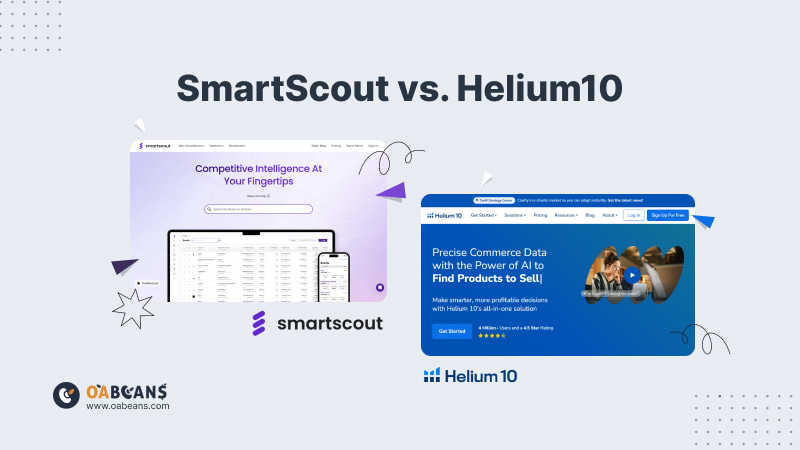
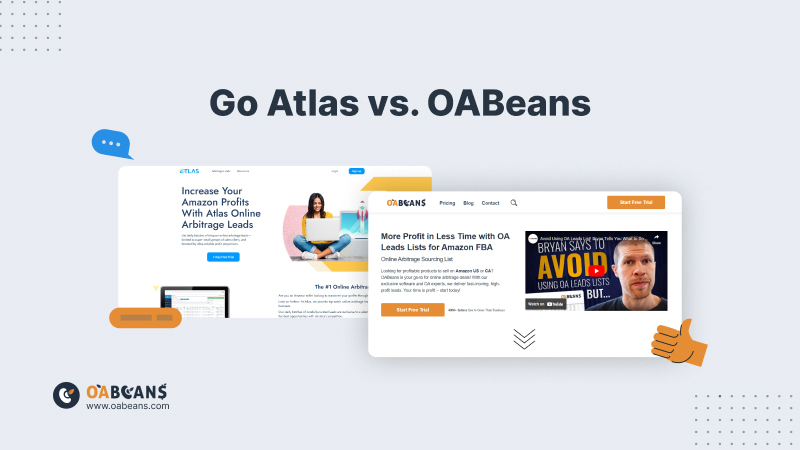
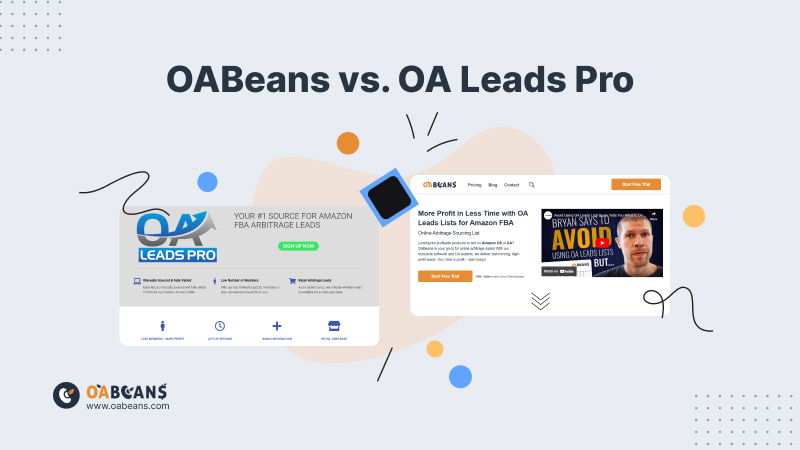





11 replies on “Lead Generation vs. Amazon FBA”
Reselling on Amazon allows sellers to leverage the power of Prime membership, attracting loyal customers who value fast and free shipping.
The Amazon FBA inventory placement service is a fantastic feature. It optimizes shipping costs and ensures efficient delivery to customers.
Amazon’s Buy Box algorithm ensures fair competition among sellers, giving everyone a chance to succeed in the reselling space.
Reselling on Amazon opens up a world of possibilities, where you can explore different product categories and find your niche within the marketplace.
I appreciate the continuous learning journey that comes with reselling on Amazon. Staying updated on market trends and strategies helps me stay ahead of the competition.
As an Amazon reseller, you have the flexibility to set your own prices, allowing you to maximize your profit margins.
Reselling on Amazon allows you to diversify your income streams by sourcing products from various channels, including retail arbitrage, online arbitrage, and wholesale.
Online arbitrage on Amazon enables you to build relationships with suppliers and wholesalers, securing reliable sources for profitable products.
The integration of Amazon FBA with other Amazon services, such as Sponsored Brands and Enhanced Brand Content, helps sellers create a cohesive and impactful brand presence.
I love the thrill of finding undervalued items and reselling them on Amazon for a higher price. It’s like uncovering hidden treasures.
By building relationships with suppliers and wholesalers, online arbitrage sellers can secure exclusive deals and discounts for profitable products.